When individuals are facing unexpected financial problems, could a housing loan refi loosen up their monthly budget? There are times when these things can help a lot. And if remortgaging won’t help – or if individuals have already missed a lot of their payments to get a refinancing – modifying the current credit could still save homeowners a lot of money. With good planning, people can give themselves leeway and safeguards to get back to a secure stage of their lives.
Things to do when a person has lost income
When individuals have already missed home debenture payments, remortgaging the credit will be a lot harder. Most financial institutions and lending schemes want to see clean payment histories for six to twelve months before they approve applications. So if a person is facing challenging times or foresees these trying times on the horizon, they need to be more proactive.
As soon as people know they will not be able to make mortgage payments, they can contact their debenture service provider (the firm to which they make payments). They need to explain their financial situation and provide proof to back their claims. For example, suppose an individual is out of work because of illness or injury. In that case, they can provide a medical certificate from their physician explaining why they cannot work for the next couple of months.
Lending firms do not want to foreclose
Borrowers have one vital asset to their side. Most financial institutions do not want to foreclose on an individual’s property. Still, unless the borrower is getting streamlined remortgages, lending firms will need to put their application through a thorough qualifying process – just like they did when the borrower got their current housing loan.
Qualifying for a refi when the borrower has lost income
The refi lending firm will need to appraise the property to see if the individual’s credit meets LTV or Loan-to-Value limits. Lending firms will also check the person’s Debt-to-Income (DBT) ratio, as well as their credit history. That is why individuals need to keep their credit scores as high as possible by making all their minimum payments for debts, such as car payments, credit cards, and home debenture payments.
It is hard when cash flow is tight, but it can make a huge difference in making them a more appealing candidate for different kinds of home loan remortgages. Individuals can also talk to other creditors. Some may let them delay payments without giving them official late payments on their credit reports.
Want to know more about DBT? Check out this site for info.
Remortgaging options when people have suffered financial hardships
If an individual is still in good financial shape credit-wise, they will have more options for reducing their mortgage payments through refinances. These options are best for people who still have good cash flow but struggling with a different kind of financial hardship like unexpected huge medical bills.
The reason is that there is a good chance that they will need to share their current cash flow with lending firms. The financial institution needs to be able to find out that the person has enough cash flow for the payments after the remortgage is complete.

Exchanging Fixed-Rate Mortgage for an Adjustable-Rate Mortgage
Borrowers may be able to switch from an FRM to an ARM at a much lower rate. Introductory ARM rates are usually a lot lower compared to FRMs, and they can help property owners save a lot of money, at least for a while. How much could cash per month remortgaging into ARMs save? Let us take a closer look at this example.
On May 2022, the average thirty-year FR was 5.25%, according to experts. On the other hand, the average 5/1 Adjustable mortgage rate was just 4.08%. If a person has a three hundred thousand home debenture at a 5.25% fixed IR pays over $1,650 each month in interest and principal. This number doesn’t include the owner’s insurance or property taxes.
By contrast, the same home debenture at a 4.08% adjustable IR costs just $1,450 every month for IR and principal. That is a savings of two hundred dollars per month or two thousand four hundred dollars per year. But adjustable rate credits are not without risk. Usually, low intro rates on ARMs are fixed for only 3-7 years. The rates adjust based on current market rates. It means the IR and payments could go up sooner or later.
So if a person plans to keep the debenture long-term and does not anticipate being able to afford higher payments in the future, it might not be the best available option for them. In addition, people might need to qualify for ARMs based on fully-indexed rates. It means the highest rate could possibly go after certain adjustments – instead of low intro rates. But for the right borrower, this kind of debenture could be an excellent way to minimize high housing costs temporarily.
For other options, people can check out refinansiering uten sikkerhet with realitypaper.com (unsecured refinancing with realitypaper.com), and other similar websites are good source materials.
Remortgage into longer-term debentures
Both fifteen- and thirty-year housing debenture terms have their advantages: fifteen-year credits need less interest, but thirty-year ones have far lower monthly amortizations. If individuals already have shorter-term credits – such as a ten-, fifteen-or twenty-year mortgage – refinancing into a thirty-year term could minimize their monthly amortization significantly. The interest and principal payment on a debenture amount of two hundred fifty thousand dollars at five percent IR differ widely based on the debenture’s term:
- Fifteen-year FRM: $1,980
- Thirty-year FRM: $1,340
This property owner could save more than six hundred thirty dollars per month by extending the debenture term. The disadvantage is that it will take more time, as well as more interest, to pay off the property if the owner sticks to the schedule for the term of the debenture. But individuals may not mind the additional cost if the longer term keeps owners in their house during a financially challenging time.
Check eligibility for a streamlined refi
Most refi options need people to document enough income, but there are some exceptions. The Federal Housing Admin streamline refi is ideal for owners who already have FHA loans and want to minimize their monthly amortization by extending their debenture term.
The Federal Housing Admin streamline is considered a low documentation credit, so it doesn’t always need income verification. People may be required to prove they are still working with a good cash flow, but there is no need to verify the income from that job.
A home appraisal is also not required. If the house has lost value, the financial institution can still approve the remortgage. The United States Department of Agriculture- and the Veterans Affairs-guaranteed debentures also offer the same streamlined refi schemes.
The Veterans Affairs streamline remortgage doesn’t need income verification or appraisals. And people do not need to show their bank account balances. These debentures are readily available to almost any homeowner who currently has a Veterans Affairs debenture.
The rates on these loans are much lower compared to traditional credit rates so people can save a lot of money on these loans. Check with any Veterans Affairs-approved lending firms, even if you are not sure whether your current debenture is backed by Veterans Affairs.
